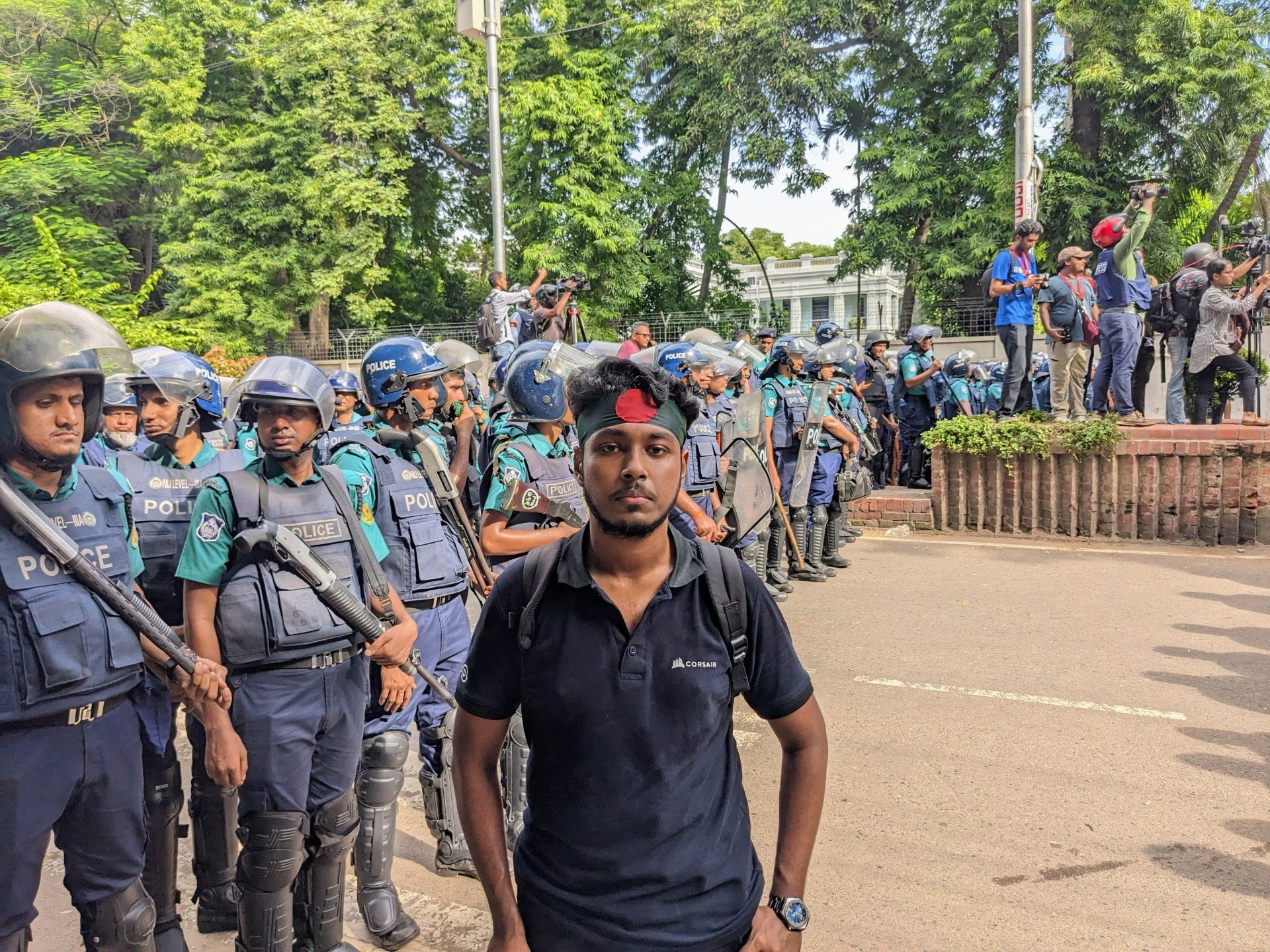Following these incidents, Hassan reflected on the state of the nation he fought for, now grappling with rampant crime and a perceived lack of concern from authorities.
On February 13, Hassan was mugged at night near his home in Mirpur, with the thieves stealing his belongings including a Pixel 4XL phone and wallet. A week later, he was again attacked and robbed, this time losing a newly purchased Google Pixel 7 phone worth $400 on a loan, while the police stood nearby. The second incident fueled his sense of helplessness.
Hassan’s frustrations escalated when he tried to file a complaint at the local police station. Instead, a member of Jatiotabadi Chhatra Dal, a student wing of the Bangladesh Nationalist Party, promised to recover his phone in exchange for money, only to later demand payment. This further betrayal left Hassan feeling victimized even by the supposed guardians of justice.
In a Facebook post that went viral, Hassan bewailed the safety concerns in Bangladesh, where crime runs rampant and police intervention is lacking, even for victims. Despite the police chief of Dhanmondi denying any obstruction to filing complaints, Hassan has not seen any police action against his muggers.
Bangladesh, with a population of 170 million, is experiencing its worst crime wave in years, with significant increases in muggings, robberies, abductions, and murders compared to the previous year. Experts express alarm over these statistics, linking the rise in crime to the political vacuum created by Hasina’s ousting.
Retired Lieutenant General Jahangir Alam Chowdhury, in charge of the Ministry of Home Affairs, insisted that the government is addressing the rising crime rate. However, public trust in the government’s assurances remains low, as violent crime continues unabated.
Incidents of extreme violence, like the attempted theft from a jeweller resulting in gunshot wounds, have become commonplace, leading to calls for action from authorities. Self-defence measures by citizens, including vigilante justice, have become a stark reality as fear grips the population.
Criminologists attribute the surge in crime to the political instability that followed Hasina’s removal and the subsequent release of convicted criminals. The lack of familiar and effective local policing, as well as persistent political influence in judicial affairs, is exacerbating the crisis.
Political analysts argue that a democratically elected government would be more effective in restoring law and order. For many young Bangladeshis, the daily reality of insecurity is a sharp disappointment, undermining the hopes for a safer, better-governed nation that they fought for.







